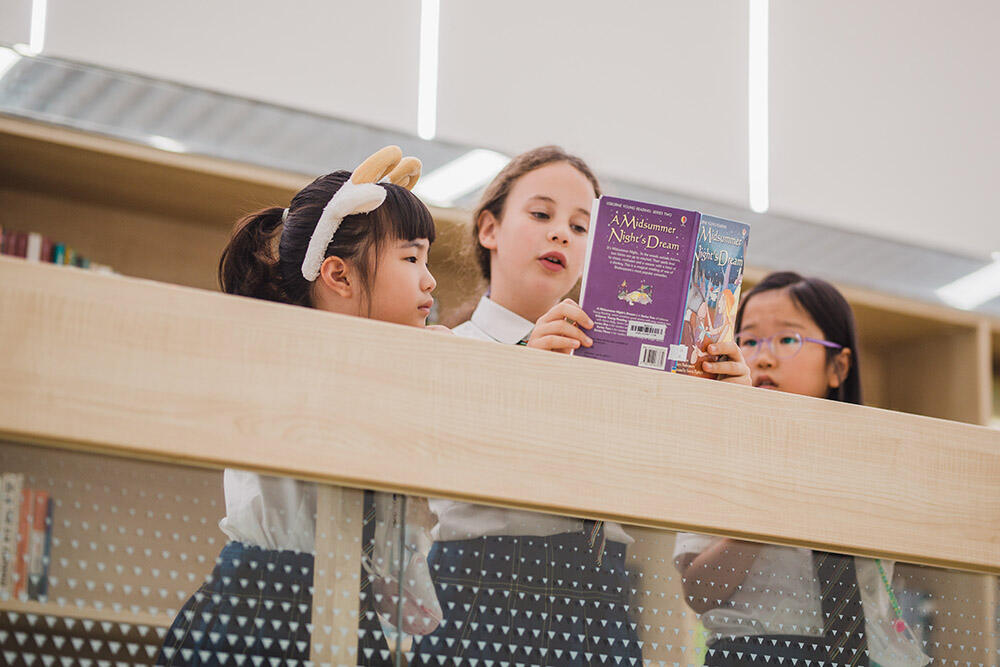The Week Ahead 9 November 2018
26 Nov 2018

 Dear Parents
I discovered this week that the world of psychology has an unofficial new term: nomophobia. Studies in Britain have identified a growing trend among young people for a novel form of anxiety disorder – the fear of being unable to have access to a mobile phone (nomophobia is the contraction of ‘no mobile phone-phobia’). Psychology Today reported that, in the US, one in five people would rather go without shoes for a week than take a break from their phones. Nomophobia resonated with me because we have had discussions in school around this issue, although until recently I did not realise it had become sufficiently serious to warrant its own name. Mobile phones have become so ubiquitous that they have moved from being a luxury item, owned by a few wealthy, technology-minded individuals in the 1990s to becoming a part of everyday life. Indeed, it seems that for many of us, the very thought of life without a mobile phone is fast becoming such a traumatic experience that some psychologists have labelled the dependence on mobile phones as, “possibly the biggest non-drug addiction of the 21st Century” (Shambare, Rugimbana & Zhowa, 2012). Teenagers and young adults have enough pressure on their developing minds without the addition of a virulent new source of anxiety.
How can school help? The first way is to address the immediate symptom, by enforcing our mobile phone policy. Phones are permitted in school but are to be kept safely in lockers throughout the day and are not to be used, except in an emergency. In this way, messaging and gaming can be managed more effectively, and nomophobes can begin to wean themselves off their compulsion to check the time, read the news or obsess over social media. Part of our aim is also to educate children about the evils of cyberbullying and other forms of virtual abuse, helping them to understand the consequences of ill-considered posts or photographs, and this has been a particular focus this week in our work on anti-bullying.
There is a more profound way that school – and parents at home – can help, though. Anxiety induced by mobile phones is not good for young people, and evidence strongly indicates a negative influence on examination results. One way to combat this bombardment of blue light, information overload and a commensurate pressure to conform to peer expectations is to turn to a far older pastime – reading. We are leading a drive on reading across the school in the coming weeks and months, with pupils and staff committed to improving the quality and quantity of our reading. Whether it is time spent alone with a book, sharing a story through role play or in discussion with members of a reading circle, the school is coming alive with stories over the remainder of the year. Reading improves concentration, aids language acquisition through vocabulary development and provides vital time away from the mental cacophony of modern living. I have been lucky enough to be the first member of staff to read a story to children in the Nest; Jack and the Beanstalk will never be the same again! More teachers and other staff will be giving their time to this reading project in the next few weeks, and as all the stories are recorded and shared online, the children can enjoy them over and over again, even at home with their families.
Encouraging young people to read is one of the most important gifts a parent or teacher can bestow, but it is equally important that adults take the time to immerse themselves in books. For many of us, reading is a wonderfully solitary experience, but talking about books can stir up even deeper levels of passion for literature. 19th Century British Prime Minister William Gladstone was reputed to have read 22,000 books in his lifetime, and whilst that might be regarded as a little excessive these days, his spirit of inquiry and thirst for knowledge should be an inspiration to us all. Our FOW reading group meets regularly, giving members a chance to share their insights into the books they are reading; fluency in Mandarin and a love of reading are the only requirements for membership. For details, see below. The College library is also a rich source of reading material, and we welcome parents to come and browse the collections. The librarian can be contacted directly via email
(jola.pulchna@wellingtoncollege.cn)
for lending arrangements. Finally, if borrowing books (and then returning them) is too much of a wrench, then why not come to the Winter Book Fair (11-12th December, Black Box foyer)? Our usual Beijing vendor will be on hand to advise you on a huge range of books to suit all ages and interests. More information will be out soon on this annual treat for bibliophiles.
I have ranged from ‘philes to ‘phobes in equal measure this week, but the core message is that 2019 will be our year of reading across the school. I would encourage all parents and friends of Wellington to help promote this most essential and enjoyable of life skills, and at the same time weaning ourselves off our emotionally unhinged attachment to the mobile phone.
Best wishes
Julian Jeffrey
MASTER
Dear Parents
I discovered this week that the world of psychology has an unofficial new term: nomophobia. Studies in Britain have identified a growing trend among young people for a novel form of anxiety disorder – the fear of being unable to have access to a mobile phone (nomophobia is the contraction of ‘no mobile phone-phobia’). Psychology Today reported that, in the US, one in five people would rather go without shoes for a week than take a break from their phones. Nomophobia resonated with me because we have had discussions in school around this issue, although until recently I did not realise it had become sufficiently serious to warrant its own name. Mobile phones have become so ubiquitous that they have moved from being a luxury item, owned by a few wealthy, technology-minded individuals in the 1990s to becoming a part of everyday life. Indeed, it seems that for many of us, the very thought of life without a mobile phone is fast becoming such a traumatic experience that some psychologists have labelled the dependence on mobile phones as, “possibly the biggest non-drug addiction of the 21st Century” (Shambare, Rugimbana & Zhowa, 2012). Teenagers and young adults have enough pressure on their developing minds without the addition of a virulent new source of anxiety.
How can school help? The first way is to address the immediate symptom, by enforcing our mobile phone policy. Phones are permitted in school but are to be kept safely in lockers throughout the day and are not to be used, except in an emergency. In this way, messaging and gaming can be managed more effectively, and nomophobes can begin to wean themselves off their compulsion to check the time, read the news or obsess over social media. Part of our aim is also to educate children about the evils of cyberbullying and other forms of virtual abuse, helping them to understand the consequences of ill-considered posts or photographs, and this has been a particular focus this week in our work on anti-bullying.
There is a more profound way that school – and parents at home – can help, though. Anxiety induced by mobile phones is not good for young people, and evidence strongly indicates a negative influence on examination results. One way to combat this bombardment of blue light, information overload and a commensurate pressure to conform to peer expectations is to turn to a far older pastime – reading. We are leading a drive on reading across the school in the coming weeks and months, with pupils and staff committed to improving the quality and quantity of our reading. Whether it is time spent alone with a book, sharing a story through role play or in discussion with members of a reading circle, the school is coming alive with stories over the remainder of the year. Reading improves concentration, aids language acquisition through vocabulary development and provides vital time away from the mental cacophony of modern living. I have been lucky enough to be the first member of staff to read a story to children in the Nest; Jack and the Beanstalk will never be the same again! More teachers and other staff will be giving their time to this reading project in the next few weeks, and as all the stories are recorded and shared online, the children can enjoy them over and over again, even at home with their families.
Encouraging young people to read is one of the most important gifts a parent or teacher can bestow, but it is equally important that adults take the time to immerse themselves in books. For many of us, reading is a wonderfully solitary experience, but talking about books can stir up even deeper levels of passion for literature. 19th Century British Prime Minister William Gladstone was reputed to have read 22,000 books in his lifetime, and whilst that might be regarded as a little excessive these days, his spirit of inquiry and thirst for knowledge should be an inspiration to us all. Our FOW reading group meets regularly, giving members a chance to share their insights into the books they are reading; fluency in Mandarin and a love of reading are the only requirements for membership. For details, see below. The College library is also a rich source of reading material, and we welcome parents to come and browse the collections. The librarian can be contacted directly via email
(jola.pulchna@wellingtoncollege.cn)
for lending arrangements. Finally, if borrowing books (and then returning them) is too much of a wrench, then why not come to the Winter Book Fair (11-12th December, Black Box foyer)? Our usual Beijing vendor will be on hand to advise you on a huge range of books to suit all ages and interests. More information will be out soon on this annual treat for bibliophiles.
I have ranged from ‘philes to ‘phobes in equal measure this week, but the core message is that 2019 will be our year of reading across the school. I would encourage all parents and friends of Wellington to help promote this most essential and enjoyable of life skills, and at the same time weaning ourselves off our emotionally unhinged attachment to the mobile phone.
Best wishes
Julian Jeffrey
MASTER




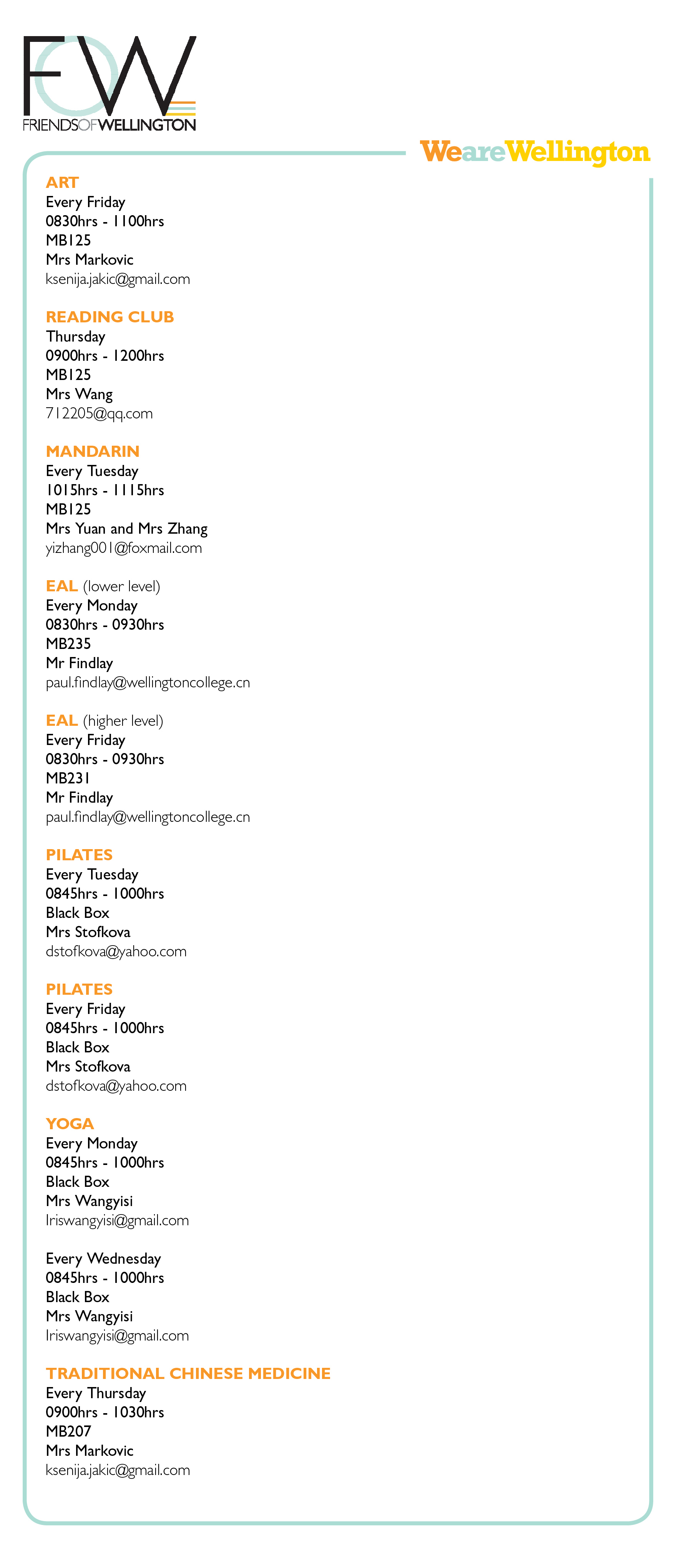


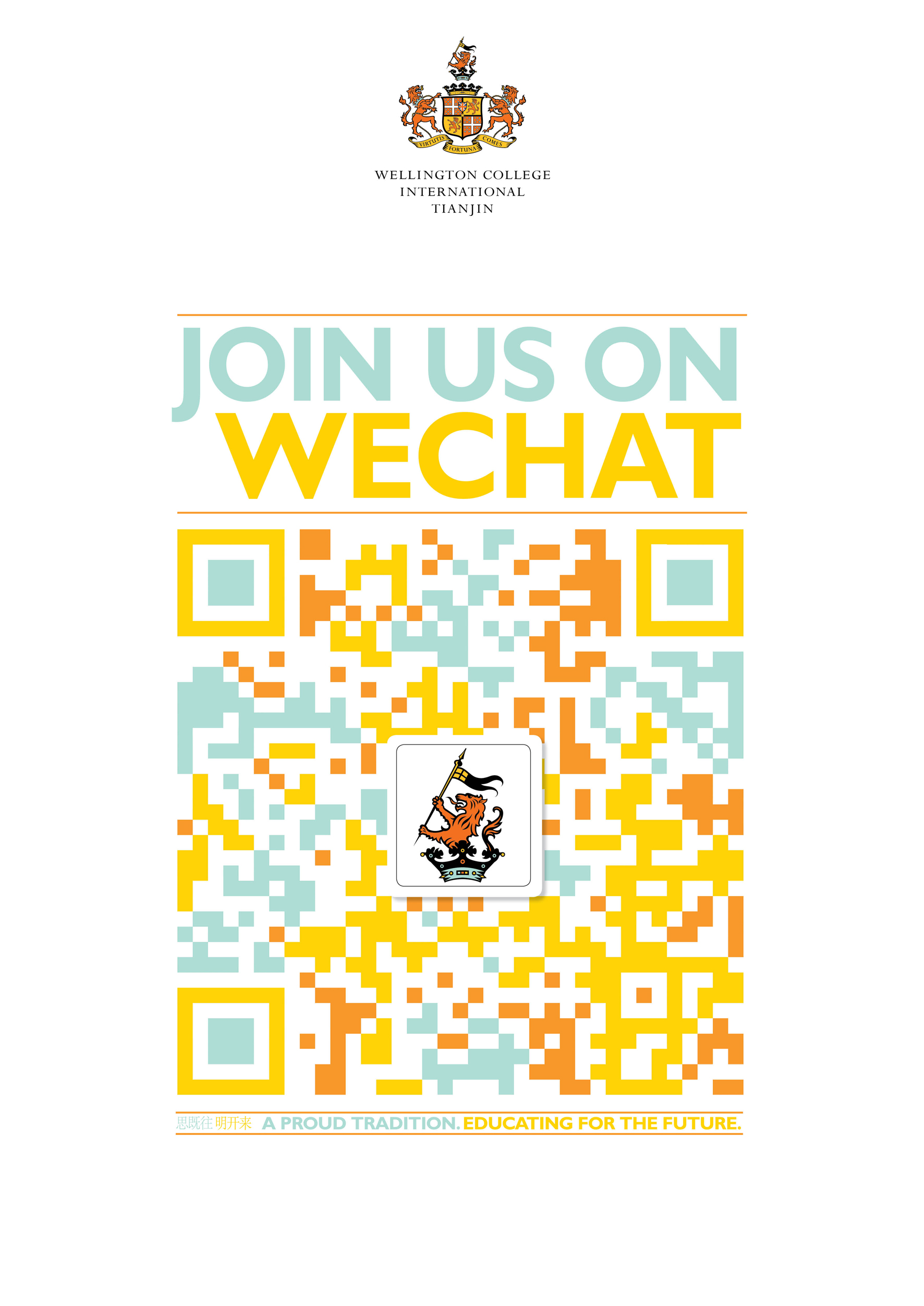
Related Articles
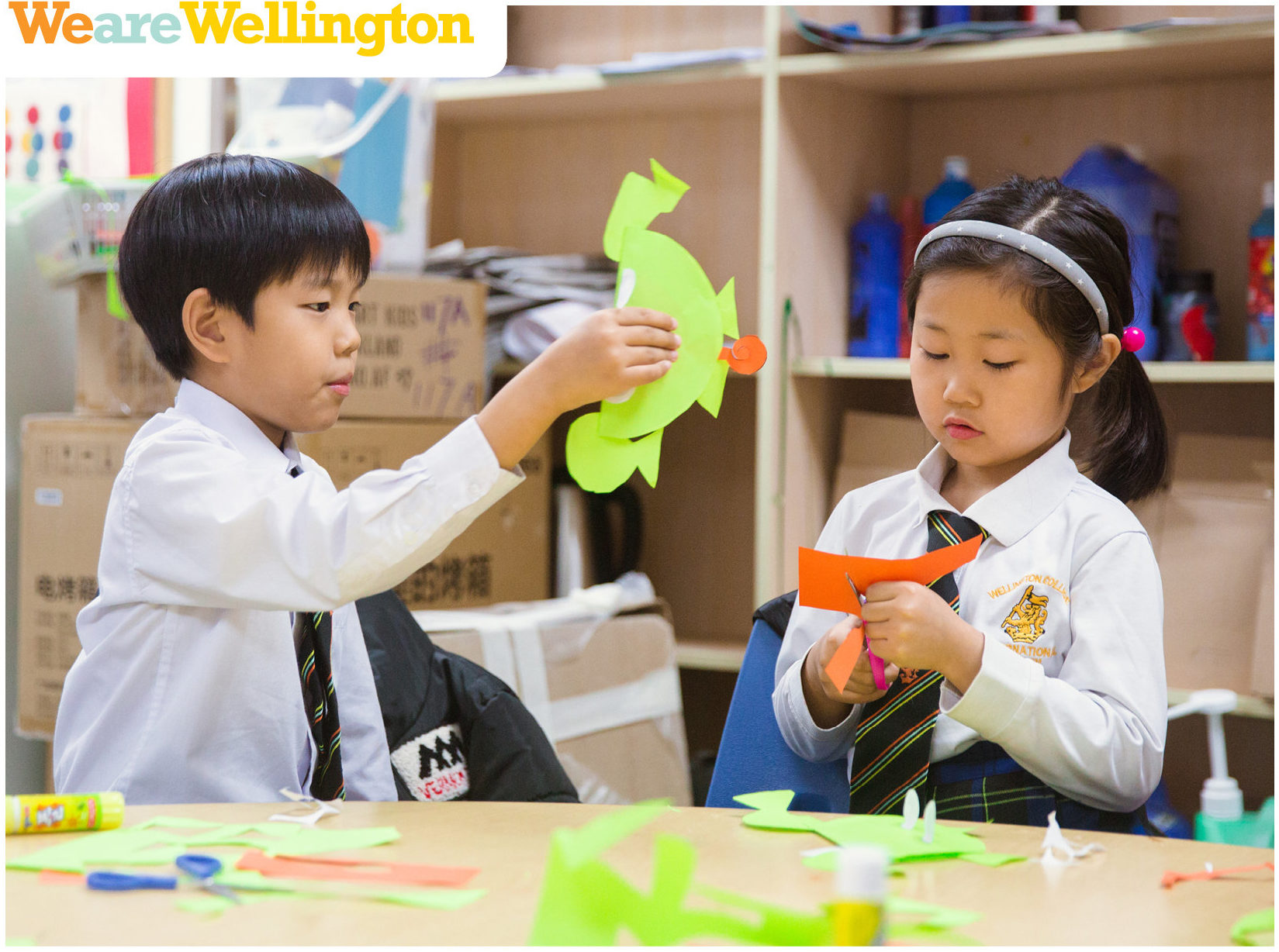
The Week Ahead 23 November 201826 Nov 2018
Dear Parents You may have spotted that we have in school three young interns from the UK. For those of you not yet lucky enough to have had dealings with these outstanding young people, I would like
Read More

The Week Ahead 25 January 201928 Jan 2019
Dear parents As we are on the verge of the school’s New Year holiday, I thought I would take this chance to look forward to the second ‘half’ of the term and pick out a few highlights for our communi
Read More
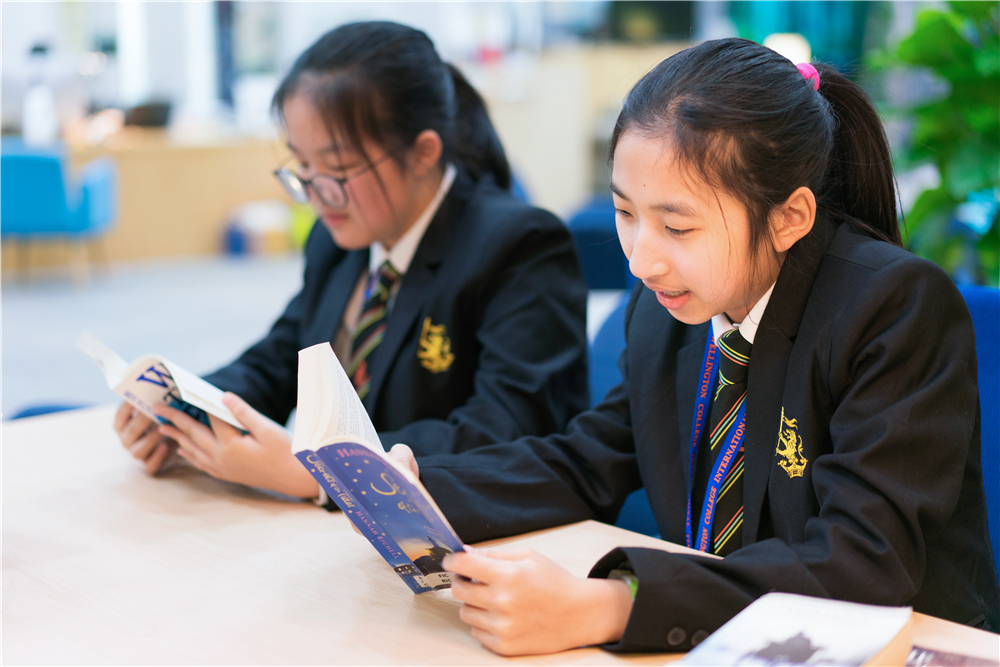
The Week Ahead 15 February 201918 Feb 2019
Dear parentsA warm welcome back for this second stage of the Lent term. I hope you all managed a happy and restful holiday, and that the new year has dawned full of promise for each of you and your f
Read More





 Channel
Channel 
 Linkedin
Linkedin  Facebook
Facebook  Ins
Ins 
